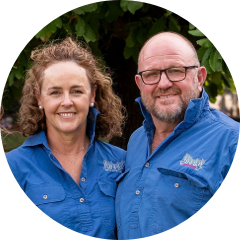Australian Cool Farm Initiative
This project was completed in 2020.
Project Officer
Dr Cassandra Schefe
WHY THIS PROJECT WAS IMPORTANT
The Australian Cool Farm Initiative aimed to promote the long-term productivity and quality of broadacre cropping systems using management practices that reduce on-farm greenhouse gas emissions. It also aimed to benefit all partners along the value chain.
The Australian Cool Farm Initiative was hosted by the Riverine Plains and Central West Farming Systems groups, in collaboration with Mars Petcare and the US-based Sustainable Food Lab.
In short: Riverine Plains Inc and Central West Farming Systems worked with farmers interested in monitoring and managing their greenhouse gas emissions.
Project focus
The Australian Cool Farm Initiative was initiated by Mars Incorporated, as part of a global commitment to reduce the environmental impacts of their business, specifically through the reduction in greenhouse gas emissions.
Mars have focused their climate change actions in the parts of the business which involve producing and purchasing agricultural raw materials. In Australia, Mars is a significant purchaser of grain, especially wheat, which is used in the Mars Petcare division.
Mars have committed to working with grain growers throughout southern NSW and north-east Victoria, to develop a program that brings value to farmers, promotes low emission management practices, improves soil carbon and invests in the long-term future productivity of the industry
Mars have engaged the Sustainable Food Lab in the USA to deliver this project, in partnership with an Australian coordinator. The Sustainable Food Lab is an independent, international organisation that works with large companies to improve their sustainability and reduce their environmental footprint.
Benefits to participating farmers
The Cool Farm Tool works by providing growers with the ability to plug in their farming practices, receiving immediate feedback on the impact of different management options using “what-if” scenarios.
The Cool Farm Tool derives emissions estimates from empirical (observed) data. Originally initiated by Unilever, a number of the world’s largest food and beverage businesses and non-government organisations now cooperate in the Cool Farm Alliance. This membership organisation is dedicated to spreading the use of the Cool Farm Tool by farmers in order to support emissions reductions from global agriculture.
Farmers who participated in the program received GPS located soil testing services on up to five locations on their farms each year, along with technical support for interpreting Cool Farm Tool results and soil tests. Farmers also received advice on management options that address key limiting factors in their farming systems, focusing on recommendations that resulted in productivity, managing weed resistance, water availability in dry years, and short and long-term carbon benefits.
Mars Petcare with project support from the Food Lab, became the first company to deliver a case study measuring carbon using the new Gold Standard protocols (standards designed to meet the global GHG reduction goals set forth in the Paris Agreement).
Project Outcomes
An article summarising key results from 2018 and 2019 was published in Research for the Riverine Plains, 2020.
Focus areas
MORE ON Sustainability & Grains
Our research enhances food production, increases environmental resilience and improves community connection across the Riverine Plains. See how our research creates impact.
-
Grains
Sustainability
-
Business
Sustainability
-
Livestock
Sustainability
-
Grains
Business
-
Grains
Sustainability
-
Grains
Livestock
-
Grains
Livestock
-
Soils
Sustainability
-
Soils
Sustainability
-
Grains
Sustainability
-
Grains
Business
-
Sustainability
Drought
-
Sustainability
-
Grains
Sustainability
-
Grains
-
Grains
-
Soils
Grains
-
Soils
Sustainability
-
Grains
Soils
-
Drought
Grains
-
Soils
Grains
-
Grains
-
Grains
Soils
-
Soils
Grains
-
Fodder
Grains
-
Grains
-
Soils
Sustainability
-
Grains
-
Soils
Sustainability
-
Grains
Soils
-
Grains
Sustainability
-
Soils
Grains
-
Grains
Sustainability
-
Livestock
Grains
-
Grains
Soils
-
Sustainability
Grains
JOIN RIVERINE PLAINS
Riverine Plains provides opportunities to see new research and innovation, connect with rural communities, and attend informative events.


